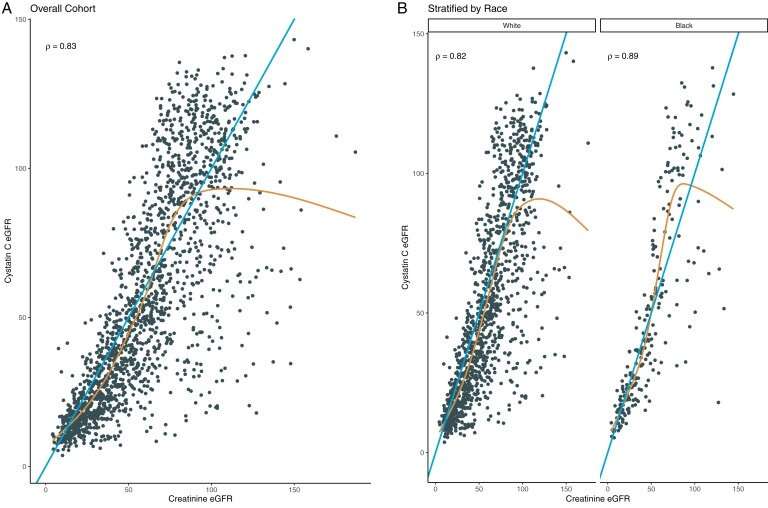This article has been reviewed according to Science X's editorial process and policies. Editors have highlighted the following attributes while ensuring the content's credibility:
fact-checked
trusted source
proofread
Cystatin C shows promise as an additional biomarker to calculate kidney function and stage chronic kidney disease

Mass General Brigham was one of the first institutions to remove race as a variable in formulas used to estimate glomerular filtration rate, the standard measure of kidney function. A national task force recommended that organizations move towards the adoption of race-free kidney function equations and utilize an additional marker called cystatin C to verify kidney function.
Historically, race-dependent GFR estimates using creatinine may have contributed to underdiagnosis and treatment of chronic kidney disease in Black patients. The change to race-free kidney function calculation has resulted in one in three Black patients at Mass General Brigham being reclassified to reflect a more severe stage of chronic kidney disease.
Brigham and Women's Hospital has led on the utilization of cystatin C as an additional kidney function marker to estimate eGFR. Investigators at the Brigham looked at 1,783 inpatients and outpatients who had cystatin C and creatinine levels drawn within 24 hours from January 1, 2018 until September 9, 2020. They evaluated how cystatin C eGFR correlated with creatinine eGFR and how it indicated differences in CKD staging.
The team found that cystatin C-based eGFR was strongly correlated with creatinine-based eGFR and that 27 percent of patients would be classified as having a more severe chronic kidney stage based on cystatin C test results; the likelihood of having a change in stage was higher among patients who had kidney function on the border between stages.
Researchers also found that Black patients were less likely to be reclassified to a more severe stage than white patients, but there were limitations in the self-identified race data. These results are important, as Black, Hispanic, and Native American patients have been shown to have less timely nephrology referrals, transplant access, home dialysis treatment and increased progression to kidney failure.
"Our study shows that utilization of cystatin C can lead to changes in CKD staging, which can impact clinical management," said Mallika Mendu, MD, Associate Chief Medical Officer, Associate Professor of BWH's Nephrology Division, and senior author of the study. "Nationally, there should be a focus on making this important test affordable and accessible to a wide, diverse spectrum of patients."
The work is published in the journal Kidney Medicine.
More information: Eric Raphael Gottlieb et al, Estimated GFR With Cystatin C and Creatinine in Clinical Practice: A Retrospective Cohort Study, Kidney Medicine (2023). DOI: 10.1016/j.xkme.2023.100600


















